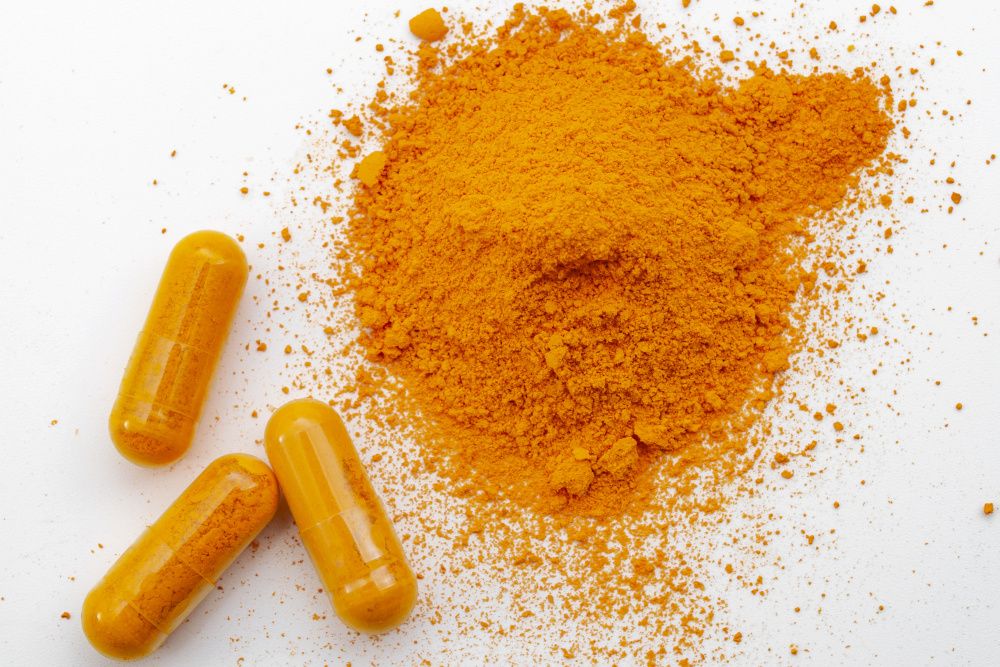Two new studies show Sabinsa’s Curcumin C3 Complex may support age-related inflammation
The first study looked at effects on older adults with low-grade inflammation, while the second study evaluated effects on inflammation in postmenopausal women.
Sabinsa Corp. (East Windsor, NJ) shared two new published studies showing that its flagship ingredient, Curcumin C3 Complex, may help support healthy aging by attenuating inflammation.
The first study, a pilot trial, was published in The Journal of Frailty & Aging.1 The study was performed on moderately functioning, sedentary older adults 65 years and older who had low-grade inflammation and whose C-reactive protein levels were greater than 1 mg/dL. Subjects were split either into a placebo group (n=8) or a group receiving 1000 mg/day of Curcumin C3 Complex (n=9) for 12 weeks. The subjects underwent physical testing, including walking tests and lower limb–strength tests, at baseline and at the study’s conclusion, in order to measure any improvements in physical functioning and muscle strength.
“Based on effect sizes, participants in the Curcumin C3 Complex group demonstrated large effect sizes in the [short physical performance battery, or SPPB] and measures of knee extension and flexion peak torque,” the researchers concluded. They recommended proceeding to a Phase IIb clinical trial to test the effect of Curcumin C3 Complex on physical functioning and muscle strength in older adults who are at risk for mobility disability.
In a press release, Sabinsa points out that “the authors hypothesize that muscle strength improvements may be related to the anti-inflammatory effects of C3 Complex.” C3 Complex also contains Sabinsa’s BioPerine bioavailability-enhancer ingredient.
The second study, a randomized crossover study published in Nutrients, gave a bioactive coconut yogurt containing curcumin and chlorogenic acid, or a placebo yogurt, to healthy postmenopausal women.2 Subjects’ blood samples were collected at baseline, at then postprandially 30 minutes and 1, 2, 3, and 4 hours after consuming the yogurt. Researchers measured levels of plasma inflammatory markers such as TNF-alpha and IL6, as well as metabolic markers like triglycerides, insulin, and glucose.
Subjects who consumed the curcumin yogurt were found to have significantly lower plasma levels of TNF-alpha Cmax almost immediately after consuming the curcumin yogurt compared to placebo. The researchers recommended that a larger, long-term study be conducted to further test these results.
The reason the study was done in postmenopausal women is that, according to the researchers, postmenopausal women generally have higher systemic inflammation and metabolic disturbances that can lead to developing chronic diseases. As Sabinsa’s press release points out, “The decrease of estrogen in menopause leads to increased body mass index, elevated systemic inflammation, and metabolic disturbances.”
References
- Mankowski, R.T.; Sibille, K.T.; Leeuwenburgh, C.; et al. Effects of Curcumin C3 Complex® on Physical Function in Moderately Functioning Older Adults with Low-Grade Inflammation — A Pilot Trial. J Frailty Aging. 2023, 12 (2), 143-149. DOI: 10.14283/jfa.2022.47
- Nasef, N.A.; Thota, R.N.; Mutukumira, A.N., et al. Bioactive Yogurt Containing Curcumin and Chlorogenic Acid Reduces Inflammation in Postmenopausal Women. Nutrients. 2022, 14 (21), 4619. DOI: 10.3390/nu14214619







2 Commerce Drive
Cranbury, NJ 08512
All rights reserved.


